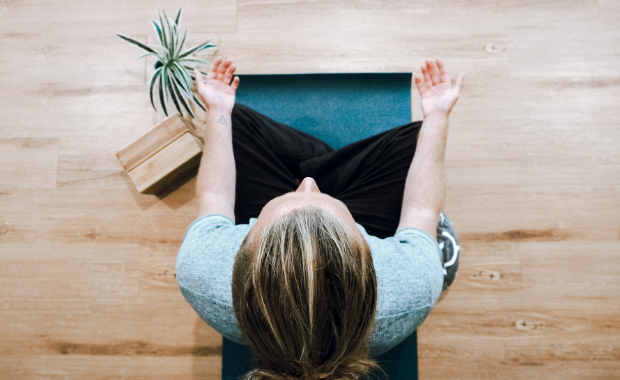- October 09, 2024
How to Make Mindfulness a Practical Skill
- September 07, 2022
- in Entrepreneurs

My journey from glossing-over life to immersing myself in life has been far from glamorous but one dripping with satisfaction that comes from self-growth. From only being able to academically spell m*i*n*d*f*u*l*n*e*s*s to making it a practical way of life is now my personal mission.
I have approached mindfulness like a curious child to understand how I can make it work for me. Some of the questions I asked were, what will it do for me? The answer to that was – there is only one way to find out, and that is by immersing myself.
I am sharing 5 nuances of Mindfulness that are now entwined in my life. It took many years of understanding and then implementing before I could find the right language to express them and make them into bite-sized workable thoughts.
Here are 5 ways to make mindfulness practical:
1. Being mindful
Being mindful is being attentive, alert, and present to a situation. Come to think of it, mindfulness has been an expectation from us throughout our lives.
Long before mindfulness became popular in the spiritual sense, the corporate world used the term extensively. ‘Be mindful that whilst you make this change, it will impact the bottom-line,’ or the board rooms usually echoed with ‘bear in mind that we don’t have a big budget.’ Mostly it was someone a level higher with broader responsibilities reminding us that there were more factors to consider when making a decision, ‘so, don’t overlook them.’
This is quite aligned to life. Mindfulness means we are alert and present and consider all possibilities. ‘Being present’ is also no different from how our schools made us respond to the daily attendance roll call.
So, check-in with yourself as often as you can – am I present when drinking this coffee or when talking on the phone? The more frequently I asked myself this question, the more alert I became to the situation at hand and that was the first step towards mindfulness. It expands your range of thinking like nothing else can do. And that opens doors of possibility.
“Do not dwell in the past, do not dream of the future, concentrate the mind on the present moment.”- Buddha
2. Work hard, party hard and in between the two, sleep enough
Working on a few hours of sleep was a badge of pride I wore just like a lot of my colleagues during my prolific corporate career. The coffee machine was the holy ground for discussing the hours of sleep we all had the previous night. The more senior the person and the fewer his hours they slept made them a bigger hero in everyone’ eyes. We thought that’s what we all needed to do to grow. So, we continued to campaign – work hard, karaoke hard, and party hard.
It took me many years to realize how lack of sleep was hollowing out my productivity, my alertness, and my mood. Very casually, I started listening to the timeless rules of sleeping for a productive day. I cannot even begin to tell how it has transformed my life.
You will usually find me in an upbeat mood and generally energized and enthused in life. I hear myself even laughing a lot more. Why had I not done it all these years? Oh well, there is never a good answer to that. But we can start now. Sleep is a gift we can give ourselves every single day. So, let’s do it.
3. Self-Love
Over the years, I have been working on making self-love practical. It is a big subset of mindfulness because it means we listen more to ourselves. So, here’s one thing I do: At the cashier at Zara or any similar store, when they ask me if it is a present, I smile and say ‘Yes, it’s a present for me.’ This has almost always made the cashier smile too. But sometimes I do let them wrap it up especially if it was underwear or bath oils.
What does it do for me? I build a special connection with myself. Every time I open those ‘presents for self,’ it’s self-love in action and reminds me it was worth waiting at the counter to let them pack it. That’s a micro-anchoring of mindfulness as you don’t rush out of the store but patiently wait, acknowledge the cashier, and engage in a dialogue which is more than handing out your credit card. All this is done with a small smile at both ends. It’s a win-win. This may sound innocuous but give it a go ‘experience’ for yourself.
“Owning our story and loving ourselves through that process is the bravest thing that we’ll ever do.” – Brené Brown
4. Self-Belief has runner’s legs
It can take you to take places you cannot imagine. Make sure you start with the smallest sprint. Believe in the silliest, most insane thing you can do today then go ahead and do it. Here’s the catch, don’t expect the outcome others have had or what the books tell you. Just do your best and be prepared to embrace ‘your’ outcome.
5. The human body is far wiser than the human mind
The mind can often give an incorrect intuition. Our mind is layered with our cultural conditioning. Often, our decisions are loaded with judgement instead of objectivity. Negativity bias is another insidious ‘devil’ that makes us remember the negative stuff more than we remember the positive things. Our mind also has an inner critic that can damage our self-esteem and self-worth when it goes on a rampage.
The body on the other hand has its own intelligence for ‘fixing.’ A femur set properly can heal in 6 weeks but if someone calls us stupid 20 years ago, our inner critic does not let us forget that. The body thus is a very sophisticated operating system and works the way nature does.
So, when you feel conflicted try and listen-in to your body. The body works with the same precision as nature. Both do their job meticulously, slowly, and little by little. A tree takes 20 years to grow, just as teaching our lungs to breathe fully again could take a few years.
But this type of gradual change is usually irreversible. Just as we can’t reverse a fully grown tree into a baby-tree, similarly a wise body does not forget how to breathe deeply. The slow but sound approach of the body is quite-fail proof and also the reason why doctors can’t speed up the process of healing and recovery after a surgery. We just have to allow the body to take it’s time.
So, the next time you feel conflicted – try and listen to your body and the thoughts that don’t constrict your chest or knot your stomach are ‘usually’ the right ones to go with.
Closing thoughts
Life is a series of events that are not necessarily sequenced in the same way as we had imagined when reading bedtime books at 7. I have come to believe that in 24-hour cycles, things go just as we wanted them to or they can also go completely wrong. Regardless, it’s in those micro-moments that lies our expansion and growth. Let’s continue to make mindfulness practical.





